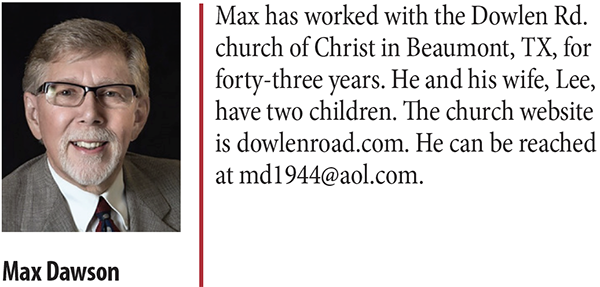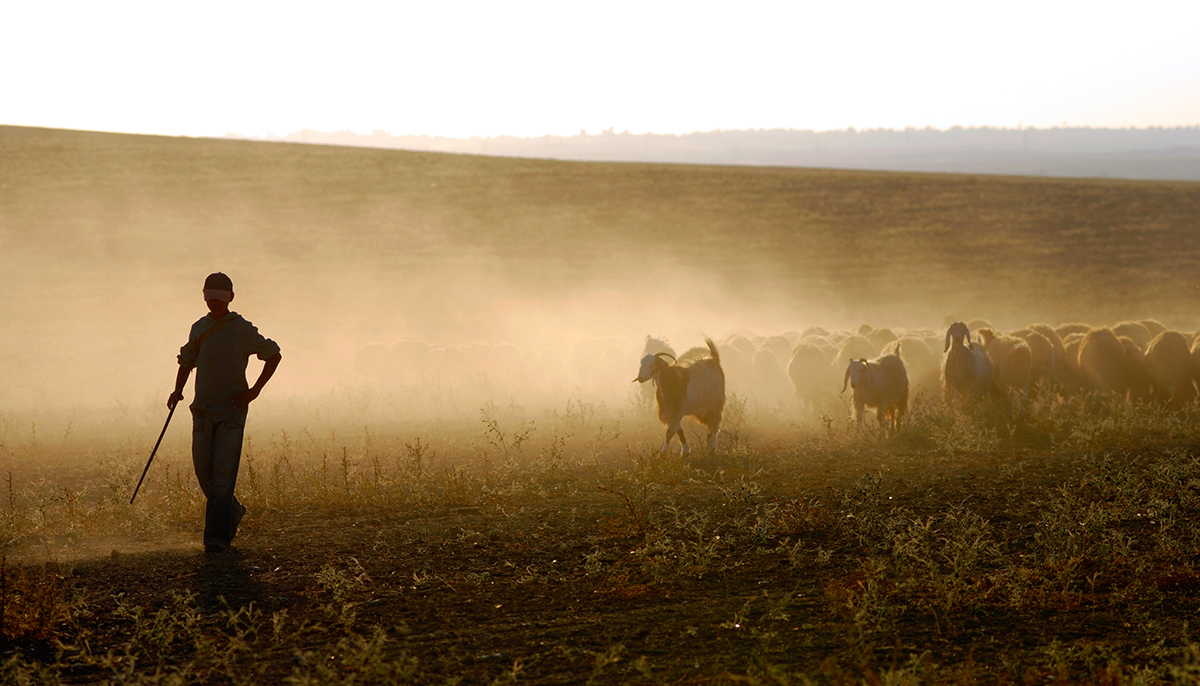by Max Dawson
Synopsis: What can shepherds do to hold on to weak sheep and help them to grow? A lot! Instead of being cynical about weak brethren, let us manifest the same loving concern that David evidenced toward the flock of his earthly father and his God.
Working with weak Christians is one of the most challenging tasks given to shepherds. One reason for this sad reality is that the weak often do not see themselves as weak.
In helping the weak, we must first determine what kind of weakness of which we are speaking. New converts are often weak in their knowledge and need to grow (2 Pet. 3:18). Some Christians are weak in their understanding, especially with matters of conscience (Rom. 14:1-15:1). Others are weak in their conviction in serving Christ. It is this last circumstance that I want to address.
The apostle Paul directs us to “uphold the weak” (1 Thess. 5:14, NKJV). Although shepherds are discussed in the larger context, this directive is given generally to all saints. If it is given to all, it certainly applies to shepherds, since they have the greater responsibility. The words used in this text are interesting. “Weak” could apply to those who are weak in understanding, knowledge, or in conviction. A.T. Robertson observes that the word for “uphold” in this verse means “to cling to, to hold on to.” We want to hold on to those who are weak. I remember a preacher from years ago who said to me, “If people want to go, then just let them go.” While we cannot force anyone to stay with the Lord, the admonition is that we should “hold on to” the weak. We do not want to “just let them go.”
There are six things I would suggest that shepherds can do to hold on to the weak.
Shepherds must have a sense of urgency. Do not delay in addressing the needs of weak Christians. Sometimes we wait until a person is almost gone before doing anything. Then we conclude, “They have left us, so we need to identify them as being out of fellowship.” Urgency is needed. Now is the time to act (2 Cor. 6:2). A time is coming when it will be too late to help those who are weak and drifting away. Jesus operated with a sense of urgency, and thus serves as our example (John 9:4).
Shepherds need to express personal concern and interest in weak Christians. Jesus Christ is our model for shepherding. In John 10:11-14, the Lord contrasted Himself with the uncommitted hireling who flees in the face of danger and “does not care about the sheep” (v. 13). The hireling does not care. Jesus cares. Shepherds must care. The weak Christian must see that in the shepherd. To accomplish that, there needs to be an intimate relationship between shepherds and the sheep. Such relationships need to be built as early as possible—don’t wait until the weak Christian is nearly gone. Once again, Jesus is the model. He said, “I know My sheep” (John 10:14). Not only did He know the sheep, but the sheep also knew Him. That’s about developing a relationship!
Shepherds need to teach weak Christians. One who is weak in his faith will never be strong until he is taught and well-grounded in the faith. Elders cannot rely on the pulpit and Bible classes to do all the teaching. If a disciple is to grow (2 Pet. 3:18), someone must take the time to personally teach him. Weakness is overcome by means of the gospel. If he is to be rooted and built up in Christ (Col. 2:6-7), someone must teach him. Overseers in the local church are not to be mere decision-makers for the congregation, but are to labor among the saints and admonish them (1 Thess. 5:12). This verse requires urgency on the part of the overseer, his personal concern for the members of the flock, and his efforts at teaching the weak sheep.
Shepherds should enlist the help of others to hold on to the weak. Perhaps there are persons of influence within the congregation who might have sway over the weak saint. While it is the shepherd who will give account for the souls in his charge (Heb. 13:17), that does not mean he can’t turn to others for help. One of the mistakes that both elders and deacons make is in thinking that they must do all their work by themselves. How many times did Paul enlist men like Timothy and Titus to assist in his larger work? What about Phoebe? She was a helper of Paul (Rom. 16:2). The simple point is that sometimes others may be able to reach a weak Christian better than I can. That does not mean I am dodging my duty. Instead, it means that I want to use all the resources at my disposal to hold on to the weak saint.
Shepherds should be patient with the weak. The same verse that tells us to “uphold the weak” also tells us to “be patient with all” (1 Thess. 5:14). This text instructs us to admonish the unruly and to encourage the fainthearted. It is easy to give up on any of these persons. The “unruly” are those who break ranks and seem to always be a thorn in the side of the church. The “fainthearted” are those who easily give up and need encouragement. Whether they face persecution, family problems, or conflict with someone in the congregation, elders have to deal with them. It is worth noting that the apostle closes this verse with “be patient with all.” The disorderly circumstances of each of these believers will try the patience of leaders, but don’t give up on them. You don’t want any of them to give up on the Lord, so we must not give up on them. I say that, while recognizing that there is a limit to what we can do with any person. Nevertheless, patience is needed!
Finally, don’t leave God out of your work to hold on to the weak believer. Pray to God for help. The Lord Jesus already cares more about the weak sheep than do you! He died for the sheep (John 10:11). God is eager for weak Christians to grow and be strong. He desires that every Christian be conformed to the image of His Son (Rom. 8:29). Our prayers for the weak must truly come from our heart’s desire. That’s what prayer is: the verbal expression to God of what is the utmost desire within our hearts. (See Paul’s example in Romans 10:1. His heart’s desire and prayer were one and the same.) Perhaps this point about prayer should be first on the list rather than last. Pray to God for help.
The things mentioned in this brief article are within the reach of every shepherd. Are their times when there is a need for tools beyond the skillset of local elders? We have all seen circumstances where we are unequipped to deal with a particular problem. That is especially true with addiction issues involving drugs, alcohol, or pornography. Sometimes professional help is necessary to assist a weak Christian. Yet, in the larger scheme of God’s economy, elders need to be confident that they have the necessary tools to help the weak grow.
May God bless all those men who have taken on the responsibility of seeing to the needs of sheep (Heb. 13:17). May the Lord of heaven and earth reward them for their labors.


